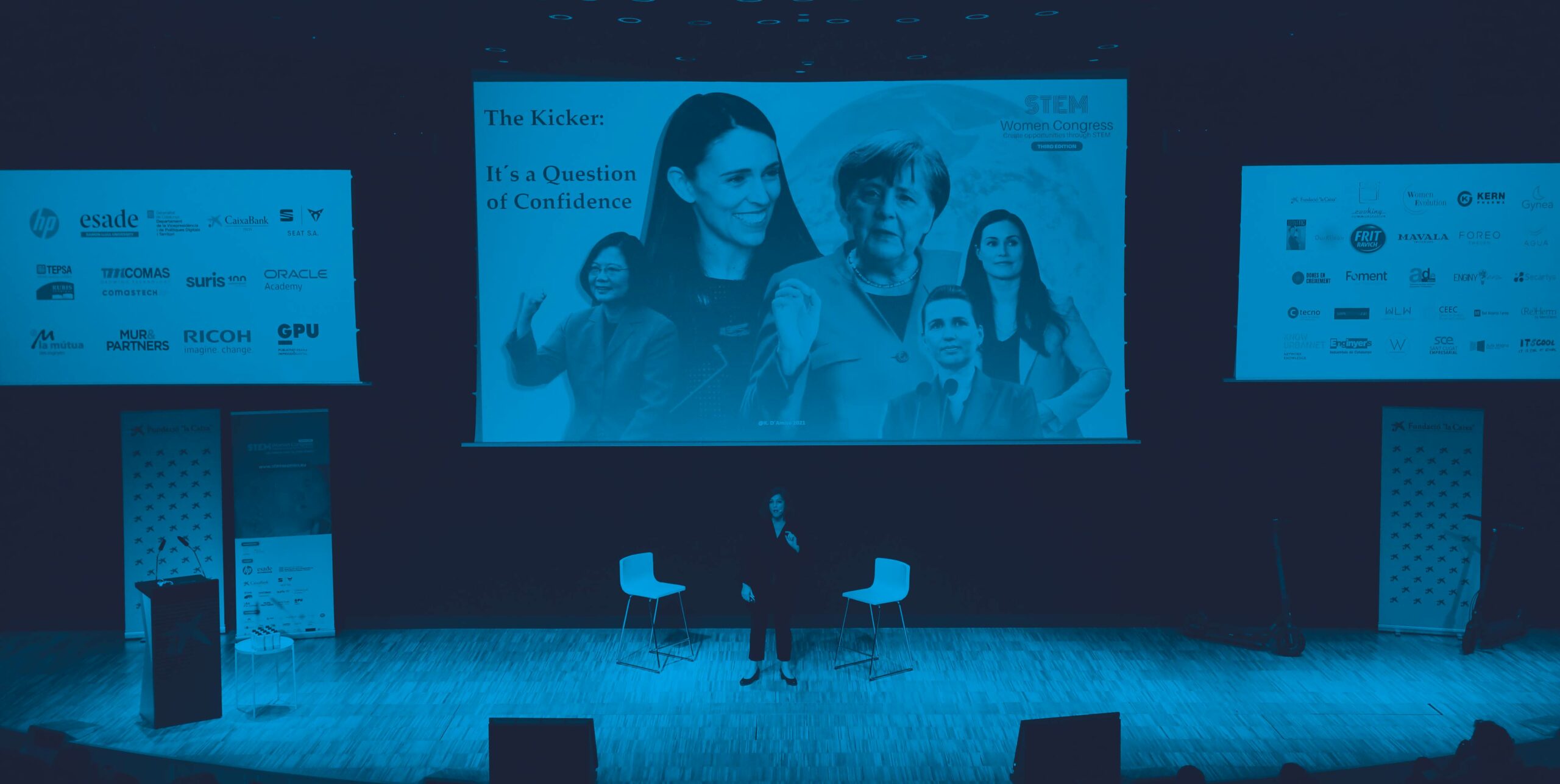Interview to Núria Salán
Why do you think so few girls choose to study STEM careers?
There is no single cause, and the importance of each one varies depending on the environment (economic, social, family, …). The main reasons lie in a lack of role models and references. There is a lack of STEM professional women who show themselves naturally and generally in regular tasks. At the same time, there are examples of STEM boys. There are STEM women who are quickly identified. However, they are usually impressive women (Nobel Prize winners: Marie Curie, Margarita Salas or professors: Anna Navarro-Schlegel), and this makes a normal girl, with normal grades, might feel outpaced from those models. It is crucial to give visibility to women inventors without a university education: it would make clear that having an excellent education is not essential to be creative or inventive. However, it is better if they have it. I call for the visibility of models of proximity, such as alumnae of secondary schools everywhere, who now have a STEM profession, regardless of how they have achieved it.
Family environment is another very influential factor. So, it is quite likely that a girl born in a STEM trained family may decide to do a technical university degree after finishing her chosen technological training cycle.
Finally, another factor sometimes turns out to be the strongest: the lack of training/information of teachers in the technological field and the multiple professions developed from STEM training. For example, very few teachers come from a technological baccalaureate. Not having knowledge or a particular passion for STEM creates clichés and ignores the more human profile of technology (design of medicines, food and medicine preservation systems, robots that make impossible surgeries possible, assistive robotics, ergonomics, comfort, sustainable design…). Therefore, it would be necessary to include technology content in general teacher training.
These three reasons often combine, and when they happen to converge at the same point, we find ourselves with a STEM black hole.

I call for the visibility of models of proximity, such as alumnae of secondary schools everywhere, who now have a STEM profession, regardless of how they have achieved it.
What would you say to our young people (boys and girls) to encourage them to choose STEM disciplines?
I would tell them that this present 21st century is the one of science and technology; the coming decades’ professions in demand have not yet been written but will be STEM-related professions, and unless they develop a minimum of competencies in this field, they will remain spectators and will not be designing their own future.
I would also tell them that the bad reputation that precedes STEM is not accurate. Mathematics is not complicated but exciting: it only needs to be well explained. Although it may be perceived as a little more complicated than other disciplines, it is not unattainable training. The gratification that comes with having the training to keep up to date is priceless.
What do you think are students’ attitudes and perceptions related to science?
They may believe science is for intelligent people, excellent grades, with a socio-economic profile far removed from low incomes. However, none of these three is strictly true. Throughout the history of humanity, science has helped us understand the reason for everything and justify surrounding phenomena. From this understanding and knowledge, we have designed remedies, improvements and solutions to live better. If nobody had dedicated themselves to STEM, we would not have mobile phones, laptops, wifi, vaccines, or dehydrated food… All the surrounding comfort is, to a large extent, the result of good STEM actions. What remains to be designed and built is in the minds of the rising generations.
What factors can significantly affect science learning?
Teachers should have a positive and assertive view of science. If they have science internalised, they will pass it on with passion.
We are selling the students successful role models who succeeded in STEM professions. However, offering a vision of the self-taught genius like Steve Jobs does not help, nor does the pressure about what to study or the right time to finish studies in order not to be a failure; there are young people who need a different pace.
There are options for gamification or learning based on actual problems, which help a lot to incorporate science from its application examples to see its usefulness. The teaching staff’s complicity and passion are necessary.
With a STEM profile, one can participate first-hand in the development and construction of a better world.

What factors can significantly affect science education and STEM vocations?
Examples of complex technologies that make our lives easier and more comfortable could help. From these examples, and going backwards, unravel the necessary knowledge for developing these technologies and, by doing so, identify the skills the people who developed them had.
Moreover, examples of sectorisation of technology application could also be used: advances in mechanics are easily directly related to powerful, fast cars; other aspects have also been significant (safety, comfort, ergonomics, energy-saving) considered as second-class achievements. The power of a car attracts boys, but girls feel more empathy for its energy efficiency. The same example, with different nuances…
It is often said that with a STEM degree, one will not be short of work. Furthermore, it is true. With a STEM profile, one can participate first-hand in the development and construction of a better world. So are you going to miss it?
References
[1] In 2017, she received the Mujer y Tecnología award from the Orange Foundation for her work in disseminating and bringing technology closer to society as a whole and to women in particular.
You might also like








Leave A Comment